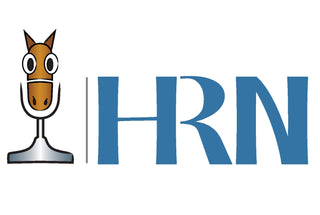Strawberries are a sweet, juicy summer fruit that many humans enjoy—but what about our equine companions? If you've ever wondered, 'can horses have strawberries?', you're not alone. Horse owners often seek safe and healthy treat options to reward or bond with their animals. Strawberries seem like an appealing choice, but are they truly safe?
In this comprehensive guide, we’ll explore whether horses can eat strawberries, their nutritional benefits, potential risks, proper feeding techniques, and more. We’ll also answer common questions and provide practical feeding tips so you can make the best decision for your horse’s health.
Are Strawberries Safe For Horses To Eat?
Quick Answer
Yes, horses can eat strawberries in moderation. These berries are non-toxic to horses and can be a nutritious, low-calorie treat when fed appropriately. However, portion control and proper preparation are essential to avoid digestive issues. Can horses eat strawberry tops? Also yes, but only in moderation.
Why This Question Matters
Horses have sensitive digestive systems. Even natural treats like fruit can cause problems if fed improperly or too often. Understanding the risks and nutritional impact of strawberries is crucial for maintaining your horse’s well-being and performance. Plus, knowing whether horses can eat strawberry tops—or if those are harmful—adds another layer to responsible feeding.

Nutritional Value Of Strawberries For Horses
Before feeding strawberries to horses, it helps to know what nutritional content they offer. Strawberries are packed with vitamins and minerals that can offer health benefits to horses—if given correctly.
Vitamins And Minerals
Strawberries are rich in:
-
Vitamin C: Supports immune health and recovery.
-
Potassium: Helps with muscle function and fluid balance.
-
Folate and manganese: Aid metabolism and bone health.
-
Antioxidants: Protect against cellular damage from oxidative stress.
These nutrients can support a horse’s overall health, especially during active seasons or recovery periods. That said, horses naturally synthesize vitamin C, so additional amounts aren't essential—but can still be beneficial.
Sugar Content And Portion Control
Strawberries do contain natural sugars. One cup of sliced strawberries has approximately 7 grams of sugar, which is relatively low compared to other fruits. However, excessive sugar can upset a horse’s digestive balance, especially in horses prone to laminitis or insulin resistance.
That’s why moderation is key. Always account for fruit treats when managing your horse’s total diet and caloric intake.
Benefits Of Feeding Strawberries To Horses
Strawberries aren’t just a tasty snack—they can offer real benefits for your horse’s health when used wisely. Let's look at how strawberries contribute to digestive wellness, hydration, and antioxidant support.
Digestive Health
Thanks to their fiber content, strawberries can promote mild digestive benefits. While they’re not a significant source of roughage like hay, their soluble fiber can help support gut function in small amounts.
-
Supports gut flora: Strawberries contain small amounts of natural prebiotics, which feed good gut bacteria.
-
Gentle on digestion: Unlike some rich fruits, strawberries are easy for most horses to tolerate if introduced gradually.
However, strawberries should never replace core elements of the equine diet like hay, pasture, or formulated feed. Think of them as an occasional supplement to a balanced diet.

Hydration And Antioxidants
One surprising benefit of strawberries is their high water content—approximately 91%. This makes them a hydrating snack during hot summer months or after exercise.
Antioxidants, such as ellagic acid and anthocyanins, are another key feature. These compounds may help:
-
Reduce oxidative stress in performance horses
-
Support immune system response
-
Promote faster recovery after training
Feeding antioxidant-rich fruits like strawberries occasionally can support overall wellness—especially for aging horses or those with higher physical demands.
Potential Risks And Precautions
Despite their benefits, strawberries are not without risks. As with any treat, knowing what to watch for ensures your horse stays safe and healthy.
Allergic Reactions
Though rare, some horses may be sensitive to certain fruits, including strawberries. Signs of a mild reaction may include:
-
Nasal discharge
-
Itchy skin or hives
-
Gastrointestinal upset
If it's your horse’s first time trying strawberries, start with a small piece and monitor them closely for any signs of discomfort.
Overfeeding Concerns
Even healthy fruits can become harmful when overfed. Strawberries are relatively low in sugar, but overconsumption can:
-
Lead to loose stools or colic
-
Increase the risk of laminitis in sugar-sensitive horses
-
Cause imbalances in a carefully monitored diet
Stick to 2–4 medium-sized strawberries per feeding, and limit treats to no more than 10% of your horse’s daily caloric intake.
Pesticides And Washing Fruit
Non-organic strawberries are often treated with pesticides. It’s essential to wash them thoroughly or buy organic when possible. Always remove any moldy or bruised portions before feeding.
-
Rinse under cold water before serving
-
Avoid canned or sugared strawberries
Never feed chocolate-covered or flavored strawberry treats
 How To Safely Feed Strawberries To Horses
How To Safely Feed Strawberries To Horses
Knowing strawberries are safe is just the beginning—how you serve them matters just as much. From portion size to preparation methods, this section covers best practices for making strawberries a healthy part of your horse’s treat rotation.
Serving Size Guidelines
Portion control is crucial. Strawberries should always be given as a supplemental treat, not a dietary staple.
Recommended serving size:
-
Adult horse: 2–4 medium-sized strawberries, 2–3 times per week
-
Ponies or minis: 1–2 strawberries at a time
Feeding more than this can cause digestive upset, especially in horses with metabolic conditions or sensitive stomachs.
Keep in mind:
-
Always introduce new treats gradually.
-
Remove stems if your horse has never eaten them before (though they are generally safe—see next section).
-
Avoid feeding alongside other sugary fruits.
Fresh Vs. Frozen Strawberries
Both fresh and frozen strawberries can be offered to horses. However, there are a few differences to consider:
| Type | Pros | Cons |
| Fresh strawberries | Easy to chew, hydrating | Must be used quickly, may spoil |
| Frozen strawberries | Great in summer, longer shelf life | Can be too hard for older horses or those with dental issues |
Thaw frozen strawberries before feeding to avoid any choking risk. Never feed cooked or sweetened strawberries, including jams or desserts.
Strawberries In Horse Treat Recipes
Strawberries can be added to DIY horse treat recipes for a healthy flavor boost. Here’s a simple example:
Basic Strawberry Oat Treat:
-
1 cup rolled oats
-
1 ripe mashed banana
-
3–4 finely chopped strawberries
-
Mix, form into small balls, and refrigerate
These treats are great for special occasions or training reinforcement. Keep portions small and store leftovers safely.
Other Fruits Horses Can Eat
Strawberries aren’t the only fruits horses can enjoy. Let’s explore some safe alternatives and a few fruits you should always avoid.
Safe Alternatives
Here are some horse-friendly fruits you can feed in moderation:
-
Apples (remove seeds)
-
Bananas (peeled or unpeeled)
-
Blueberries
-
Watermelon (seedless)
-
Pears (no seeds)
-
Oranges (peeled)
These fruits offer similar benefits and variety to your horse’s treat routine.

Fruits To Avoid
Not all fruits are safe. Some contain toxins or present choking hazards.
Avoid feeding:
-
Avocados (contain persin, toxic to horses)
-
Cherries (contain cyanide in pits)
-
Grapes and raisins (linked to kidney issues in other animals—better avoided)
-
Tomato leaves and unripe tomatoes (toxic compounds)
Final Thoughts On Horses Eating Strawberries
So, can horses have strawberries? Absolutely—when offered in moderation and prepared properly, strawberries can be a refreshing, nutritious treat for your horse. They're packed with antioxidants, vitamins, and water, making them especially useful in warm weather or as an occasional reward. However, it’s important to avoid overfeeding and ensure the fruit is thoroughly washed to minimize pesticide exposure.
Here’s a quick summary of what we covered:
-
Yes, horses can eat strawberries, including the tops, as long as they are pesticide-free and fed in small portions.
-
They contain helpful nutrients such as vitamin C and antioxidants that support immune health and recovery.
-
Be cautious about feeding too many strawberries due to their sugar content, especially in horses with metabolic issues.
-
Always wash fruit, monitor your horse for any reactions, and stick to feeding treats in moderation.
-
You can offer strawberries fresh, frozen (thawed), or as part of a homemade horse treat.
By keeping these tips in mind, strawberries can be a safe and enjoyable treat that adds variety and nutritional value to your horse’s diet.
Can Horses Eat Strawberries Q&A
How many strawberries should a horse eat?
An adult horse can safely eat 2–4 medium-sized strawberries 2–3 times per week.
Can horses eat strawberries and how can they benefit them?
Yes, strawberries offer hydration, antioxidants, and nutrients that support digestion and immune health.
Can horses eat strawberry tops (leaves and stems)?
Yes, the green tops are safe for horses to eat. Just make sure they’re washed and free of pesticides. As with the fruit, feed them only occasionally.
















































